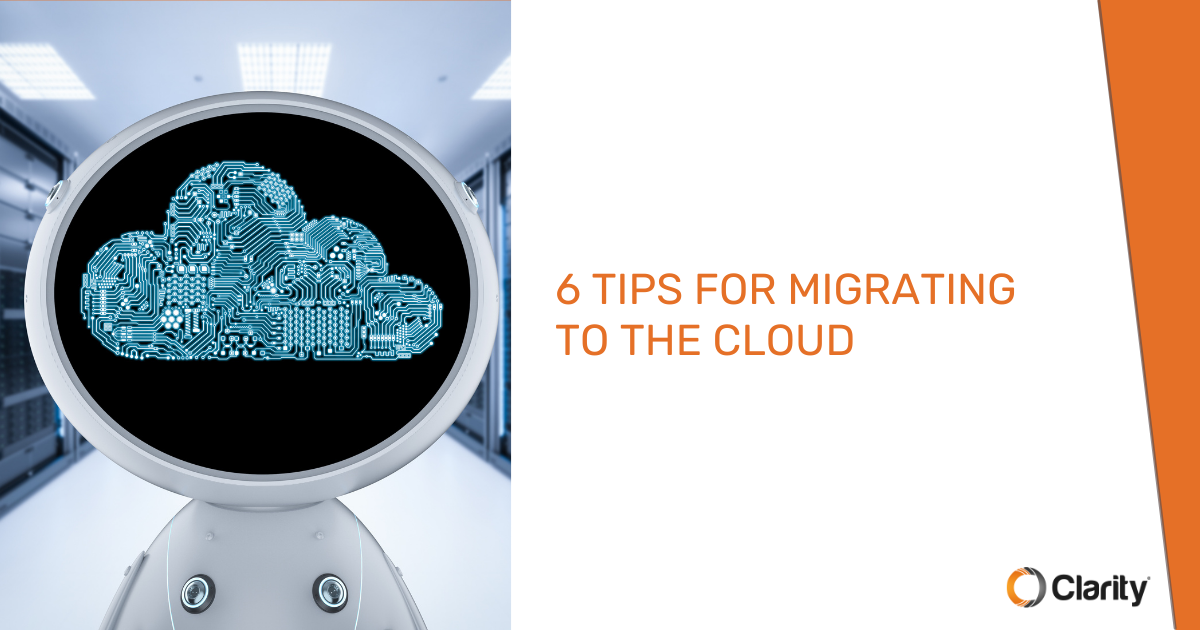In today’s business landscape, everyone from startups to established companies seems to be looking upwards—to the cloud! Cloud technology offers better efficiency, flexibility, and scalability, so it’s no wonder businesses in every industry are migrating to the cloud.
However, like any business move, there are a lot of considerations that go into the decision. If you haven’t jumped fully (or at all) into cloud technology, chances are you just want to make a calculated, strategic move that is right for your business.
That’s where this article steps in. Using the 5 Ws and H framework, we’ll guide you through the Why, What, Where, Who, When, and How of migrating to the cloud. From determining your reasons to finding the right cloud providers to figuring out how to make the migration go smoothly, we’ll cover everything you should think about before switching to the cloud.
1. Why Migrate to the Cloud?
The first question to consider is why migrate to the cloud in the first place. Surely, many businesses are doing so, but does it make sense for you? Here are some reasons businesses are making the shift so you can evaluate if they apply to your business.
- Cost Savings: Cloud solutions often cut the costs of physical hardware and maintenance.
- Scalability: Cloud technology can grow as your business grows and adjusts to meet your needs.
- Accessibility: Cloud solutions are accessible from any location, allowing your team to work away from the office and anywhere in the world.
- Collaboration: With increased accessibility comes the ability to collaborate across locations in real time.
- Disaster Recovery: Since data from applications is stored in the cloud, it is safe and recoverable in the chance of a disaster.
- Innovation: Cloud solutions offer the latest features and benefits, which can drive innovation in your business.
The first step in migrating to the cloud is determining if it makes sense for your business. Do any of these benefits resonate with your business needs and goals? Could these advantages streamline your operations or improve your service offerings? If you can answer the question “Why migrate to the cloud?” with solid and sound reasons, it’s time to proceed to #2.
2. What Can You Migrate to the Cloud?

When it comes to migrating to the cloud, the possibilities are endless. Understanding some of your options will help you decide what aspects of your business would benefit from moving to the cloud. Here are some areas to consider:
- Cloud Phone Systems: Migrating your phone system to the cloud can improve communication and help you integrate with other tools like your POS and CRM.
- Data Storage and Backup: Securely storing and backing your data up in the cloud can protect you from data loss in the case of a disaster.
- Point-of-Sale Systems: Moving your POS to the cloud can streamline transactions and make sales easier.
- Customer Relationship Management Systems: A cloud-based CRM can offer real-time customer insights to help your lead management and customer outreach.
- Project Management and Collaboration Tools: Cloud-based project management tools enable real-time collaboration wherever your team is located.
- Analytics and Business Intelligence Platforms: Powerful cloud platforms can allow you to conduct sophisticated data analysis and gain actionable business insights.
Reflect on this list to identify which cloud options align with your needs and goals. Consider starting with the options that will significantly impact efficiency, customer satisfaction, and growth. Migrating to the cloud doesn’t have to be all-or-nothing. Prioritize your needs and plan out your migration in small steps.
3. Where Should You Focus the Migration?

Having explored your options for cloud technology, you can now think about where in your business the migration will have the biggest impact. For example:
- Departmental Benefits: Look at each department or area of your business to determine how it would benefit from cloud technology. Would a cloud-based phone system help your sales team? Would your HR department benefit from a cloud-based payroll system?
- Single vs. Multiple Locations: If you own multiple units, determine where the cloud migration needs to happen. Will you be rolling the change out across multiple locations, or would starting with a single location be more strategic?
- Impact on Work: Another consideration is how implementing certain cloud technologies would impact where people can work. Would the move to a cloud solution(s) support remote or hybrid work models? Could it open the doors to hiring global talent, including contractors and freelancers who work remotely?
In evaluating “where,” you’re looking to see where within your organization the switch to cloud solutions will make the most significant difference.
4. Who Should You Partner With?

The most critical decision when migrating to the cloud is which provider(s) to partner with. Here are some considerations as you evaluate cloud providers.
- Features: Decide what features you need and compare each provider’s offerings.
- Cost: Look for transparent pricing that fits your budget.
- Scalability: Ensure the provider can scale services as your business grows and changes.
- Security: Evaluate the provider’s security measures and compliance to ensure your data will be protected.
- Performance/Reliability: Research performance history and uptime to evaluate service reliability.
- Reputation/Ratings: Check reviews, ratings, and testimonials to evaluate reputation.
- Support: Consider the level of customer support offered and look for comprehensive 24/7 support.
Use these criteria and research your options carefully to choose a cloud technology partner that meets the needs of your business now and in the future.
5. When Should You Make the Move?

Now that you’ve selected your cloud partner(s), you’ll have to think about the timing of your migration. Here are some things to consider.
- Business Cycles: Choose a period of low activity for the migration to minimize disruptions.
- Preparation and Training: Allow your team enough time to prepare for the switch and receive training on the new technology.
- Test Phase: Consider a test phase before going fully live in order to address issues.
- Rollout Time: Check with your cloud partners for the estimated rollout time.
By carefully considering these factors, you can minimize disruptions and ensure a smooth and efficient migration.
6. How Can You Ensure Success?

How you handle the switch is as important as who you partner with. Here are some key elements to consider as you execute your migration.
- Team Communication: Keep your team informed before, during, and after the migration so they understand the changes and expectations.
- Team Training: Provide training on the new cloud system so your team can use it effectively from day one.
- Partner Resource: Take advantage of any resources your cloud provider offers, including documentation, tutorials, and help chats.
- Data Backup: Back up all critical data to avoid any potential loss during the migration.
- Post-Migration Evaluation: After the migration, evaluate the new system and its impact on your operations to identify any issues.
Considering how you will roll out the changes will significantly enhance the chances of a smooth and successful migration to the cloud.
Is It Time to Migrate to the Cloud?
So, is it time for your business to migrate to the cloud? Now that you’ve reviewed the 5 Ws and H of cloud migration, you have the information you need to make a confident decision.
Is it time to take your business communication to the cloud? Consider partnering with Clarity Voice! Our cloud phone system has robust features, helpful integrations, and innovative products like Clarity Cellular and Full Story Ai. Reach out to our team and get started today!



